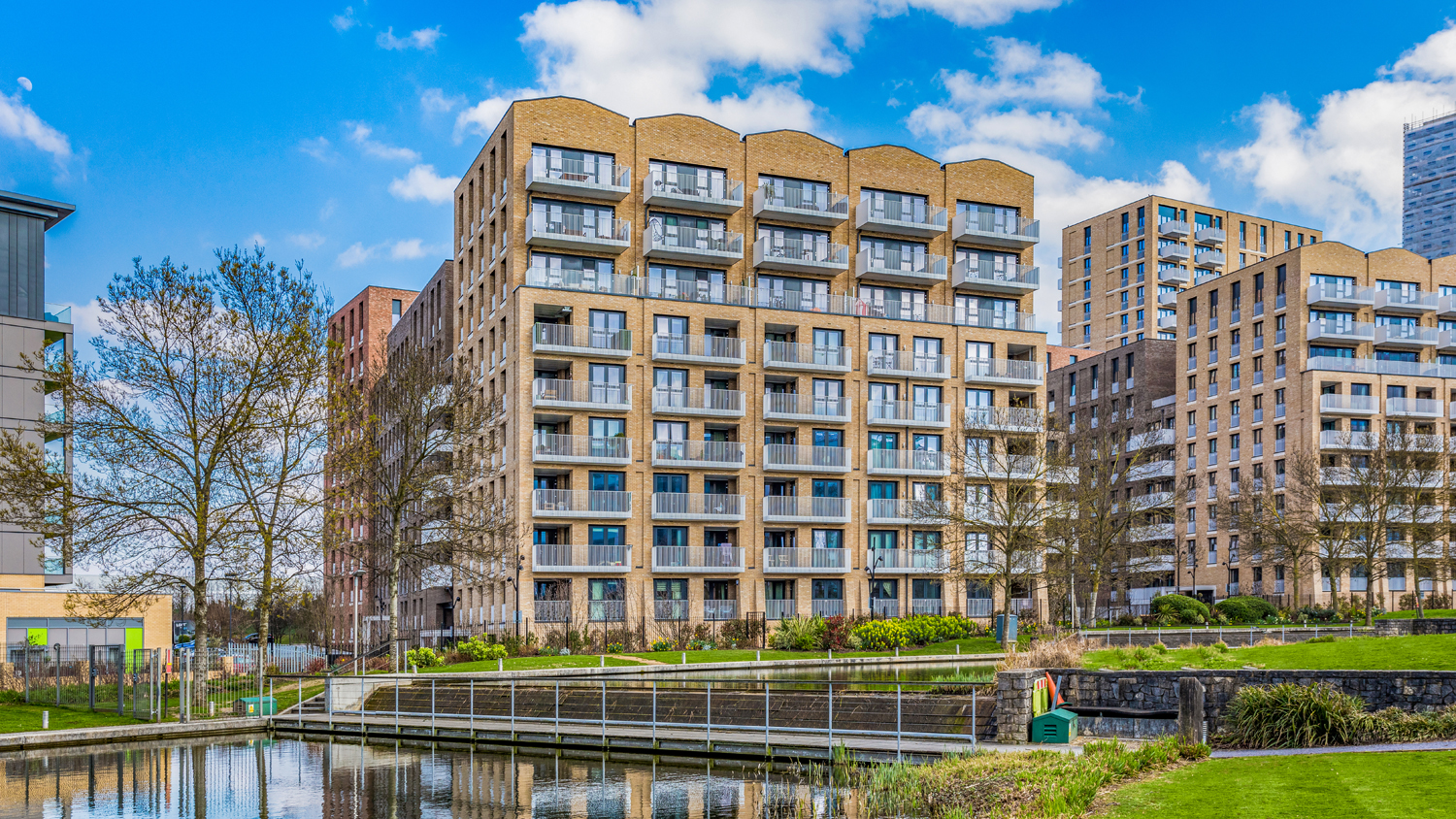Supporting our Customers Our Lettings Team are on hand to assist customers throughout their London Living Rent journey, from initial viewings right through to the handover of keys, helping them to find the right home based on their individual circumstances. We are available to talk through any questions or queries customers may have at any point in the process. If you would like to speak to a member of our Lettings Team – you can find contact details on our development pages.

London Living Rent Frequently Asked Questions
London Living Rent - FAQs
Frequently asked questions about London Living Rent:
Learn more about what London Living Rent is here
Who is LLR for?
The LLR scheme is for people who cannot afford to buy a property through Shared Ownership or on the open market. The aim is to have the capacity to a share of the property at any time within ten years.
How long will my tenancy be?
An initial 3 years Assured Shorthold Tenancy (AST) will be given with an option to renew at the end of the term, subject to eligibility. The maximum rental term of 10 years applies.
How is my rent calculated?
LLR rents are based on one-third of average local household incomes, as defined by the GLA.
Will my rent increase?
Yes, each April at no more than CPI. It can change in the future, subject to the rates published by the GLA in December.
What happens if I am unable to buy after ten years?
You will be unable to renew your tenancy and the property will be returned to L&Q.
What happens if my income changes throughout the tenancy?
Should your circumstances change within your tenancy term, you will be required to inform your Property Manager who will advise you accordingly.
Can I upsize or downsize?
Yes, following an initial 12-month period, subject to availability and meeting eligibility criteria.
Can I add or remove someone from the tenancy?
Yes, following an initial 12-month period, subject to eligibility and written consent. You will be required to undertake all reference checks again should the household change.
Is there a break clause?
Yes, a 12-month break clause within the three years fixed term AST.
Can the terms in the tenancy agreement be amended?
No, all terms and clauses in the tenancy agreement cannot be amended. You will be given a draft tenancy agreement to review before signing.
Will my savings be assessed throughout the tenancy?
During the tenancy period, we may from time to time contact you to discuss and review your plans and progress towards saving for a deposit.
Is there a set amount of money I need to save every month?
No, L&Q do not determine a fixed monthly saving as part of the LLR tenancy.
On the application form, what constitutes as savings?
Savings are defined as funds across all household accounts aged 18 and over. This includes banking accounts, savings accounts, bonds, ISAs and investments.
Who is my security deposit protected and registered with?
Your security deposit will be registered and protected by the Tenancy Deposit Scheme (TDS).
When will my security deposit be returned?
You will be contacted by your Property Manager and negotiations surrounding the release of your security deposit within 10 working days of your tenancy end date.
Is there gas in the property?
Most of our properties do not have gas. Where there is no gas at a development, heating and hot water will be supplied by a communal heating system. In these cases, your household will sign up to a fixed supplier who supplies the energy throughout your tenancy.
Is there parking available?
This varies by development. However, most of our developments do not have parking available and due to local restrictions, you will likely be unable to apply for a resident parking permit.
Are pets permitted?
Pets may be permitted with prior written consent. There may be additional charges from our freeholders and third-party agencies.
What happens after my tenancy is up?
When you’re ready to purchase your LLR home, we have a friendly Homeownership team on hand who can help guide you along the next steps. We also have trusted Specialist Mortgage Advisers who can assist in your buying journey, if required.
Where can I find out more about buying my LLR home?
You can contact our Homeownership team via email: purchaseoptions@lqgroup.org.uk or by calling: 0300 456 9997. Alternatively, you can find more information on our website here.
I have a problem with my application form, who do I contact?
Our central inbox is no longer in use. To contact us please contact the specific scheme inbox. See below the specific development emails:
LLRQueensQuarter@lqgroup.org.uk
LLRChobhamManor@lqgroup.org.uk
LLRRegencyHeights@lqgroup.org.uk
LLRNewCrossRoad@lqgroup.org.uk
LLRBarkingRiverside@lqgroup.org.uk
LLRHayesVillage@lqgroup.org.uk
LLRLexingtonGardens@lqgroup.org.uk
LLRRookeryGrove@lqgroup.org.uk
LLRChurchfieldQuarter@lqgroup.org.uk
LLR Financial Qualification Assessment - FAQs
How is my affordability assessed?
Our assessments are carried out to ensure all tenants meet the London Living Rent eligibility criteria, which are:
- Your annual household income must not exceed £67,000
- You must live or work in London
- You must be unable to buy a home, including through Shared Ownership
- You must not own a residential property in the UK or overseas
- You must meet the minimum income required for your preferred property
As part of the financial assessment, all household members aged 18 or above will be required to provide documentation to enable an assessment of eligibility and affordability.
I meet the minimum income required; however, I have been advised that I do not meet affordability; why?
Minimum income requirements should be used as a guide and can vary depending on a household’s individual circumstances. The minimum income is provided on the basis that alongside your monthly rent, you will have no other financial commitments apart from living expenses. Salary deductions or financial commitments; for example, credit cards or loans, will be factored into your affordability assessment and may impact the minimum income requirement for your household. This means that in some instances, although you may meet the minimum income, you are unable to proceed based on affordability. The target is for your monthly rent and financial commitments not to exceed 40%-45% of your monthly net income once all have been considered. The actual percentage will be dependent on the development you have applied for.
How do you set the affordability requirement for each property?
We use the Greater London Authority and Homes England guidance to set our affordability parameters.
I’ve recently started a new job. Can I still apply?
As part of the financial assessment, you will be required to provide 3 months’ payslips to evidence your income. If you have changed employers within the last 3 months, your application may still be considered if you are able to supply two consecutive payslips from your previous employment and one full month’s payslip from your new employer.
I am due a pay rise, will my new salary be considered?
Yes. We will assess your application using your new salary if you are able to supply at least one month’s full payslip at the increased amount.
What income is taken into consideration during the affordability assessment stage, and what documentation will I need to provide?
- Employed Income – You must have 3 months’ consecutive pay slips from your previous or current employer
- Self-Employed Income – A minimum of 2 Years SA302’s and Tax overviews are required for sole traders and Limited Company Directors (the average net profit of the last 2 years will be used)
- Fixed Term Contractors – You must have a minimum of 3 months’ pay slips and a minimum of 12 months remaining on your current contract at the time of the tenancy start date
- Zero Hour Contract Workers – You must have a minimum of 6 months’ consecutive pay slips available
- Pension Income – Last 3 Month’s Pay slip/statement
- Universal Credit Statement or Award Letter – (Excluding the housing element)
- Disability Living Allowance – Latest Annual Statement required
- Court Ordered Child Maintenance – Copy of court order and evidence of payments received
I receive bonuses and or commission payments. Will this income be considered?
Overtime, bonuses, and commissions are examples of non-guaranteed income. These will be considered and calculated using the average amount over the last 3 months’ consecutive payslips or, if paid annually, the latest two payment amounts. When calculating this non-guaranteed income, 50% of the total will be taken into consideration.
Why is the income cap £67,000?
London Living Rent is a government-funded scheme targeted at middle-income households working or living in London and looking to build up savings for a deposit to purchase a home. As part of the criteria set by the Greater London Authority (GLA) the maximum household is £67,000.
Do I need savings to qualify?
As part of your financial assessment, you will be required to provide evidence of all savings accounts held by your household. Your savings will be reviewed to demonstrate that you have a minimum of one month’s advanced rent and five weeks’ rent as a tenancy deposit.
Why have I been advised I can purchase a property via Shared Ownership?
During your financial assessment, your household’s current financial position and ability to obtain a mortgage will be assessed using guidance from the Greater London Authority (GLA) and Homes England. The London Living Rent scheme is designed for Londoners who wish to build a deposit to transition from renting to homeownership. In line with the criteria for the scheme, your household must not be able to purchase a property via Shared Ownership or on the open market to be eligible for the scheme.
What happens if I do not want to buy on Shared Ownership and would prefer to rent?
To be eligible for London Living Rent, your household must not be able to purchase a property via Shared Ownership or on the open market. If your household has been advised that they are able to purchase a property via Shared Ownership, unfortunately, your household will not qualify for the scheme.
Will County Court Judgement and, or Defaults affect my application?
When applying for a London Living Rent home, you will be required to demonstrate a good credit history. We are unable to proceed with applications where members of the household have any of the following registered on their credit file:
- County Court Judgement
- Defaults which include late payments
- Individual Voluntary Arrangement (IVA)
- Credit agreement missed payments
- Bankruptcy
We will ask that you provide a copy of your Check My File credit report when you apply. Check My File is a multi-agency credit report provider.
I am taking maternity/paternity leave. Will this impact my assessment?
The financial assessment will review your current circumstances to ascertain suitability and affordability for the scheme. This will also entail an assessment of any impending changes to your financial circumstances which may impact on your households ongoing affordability.
